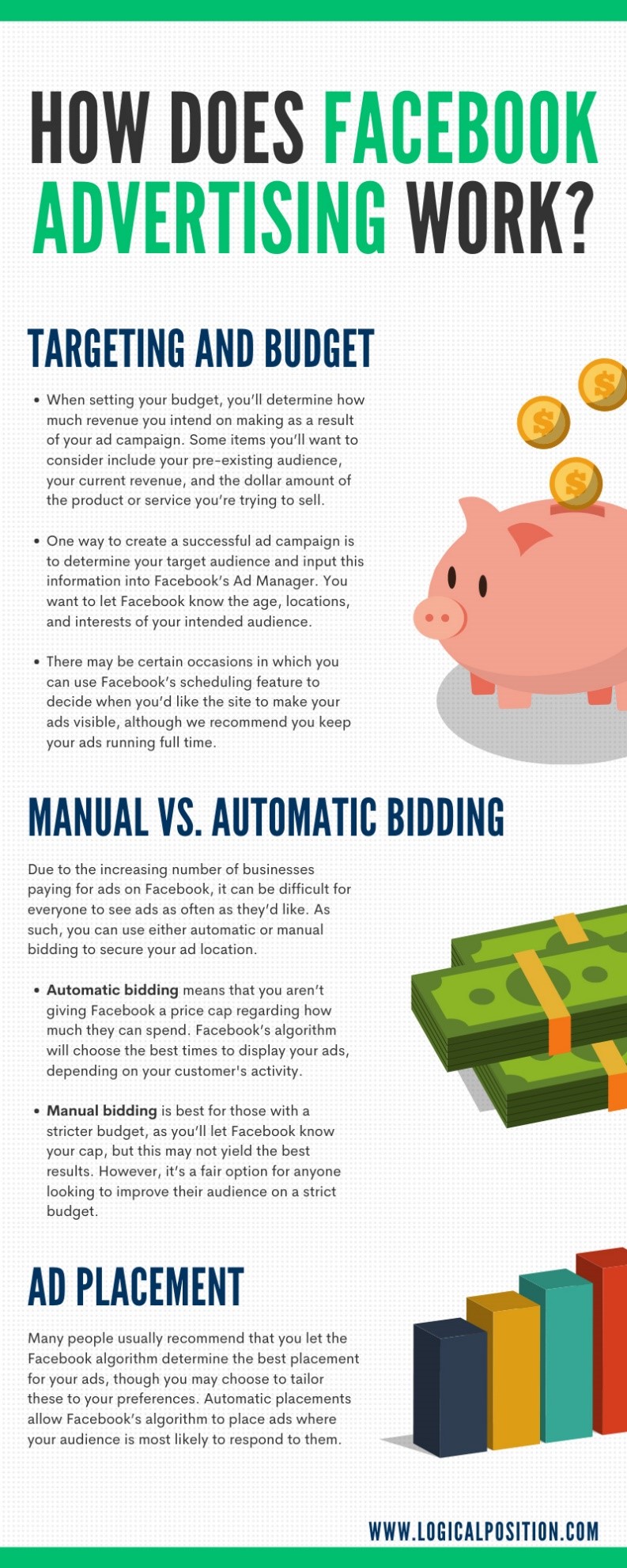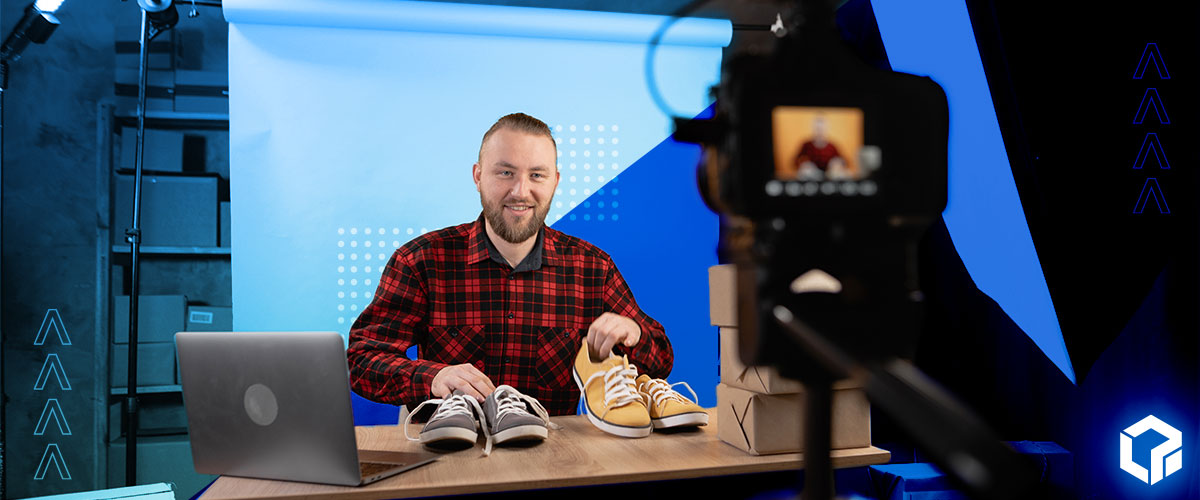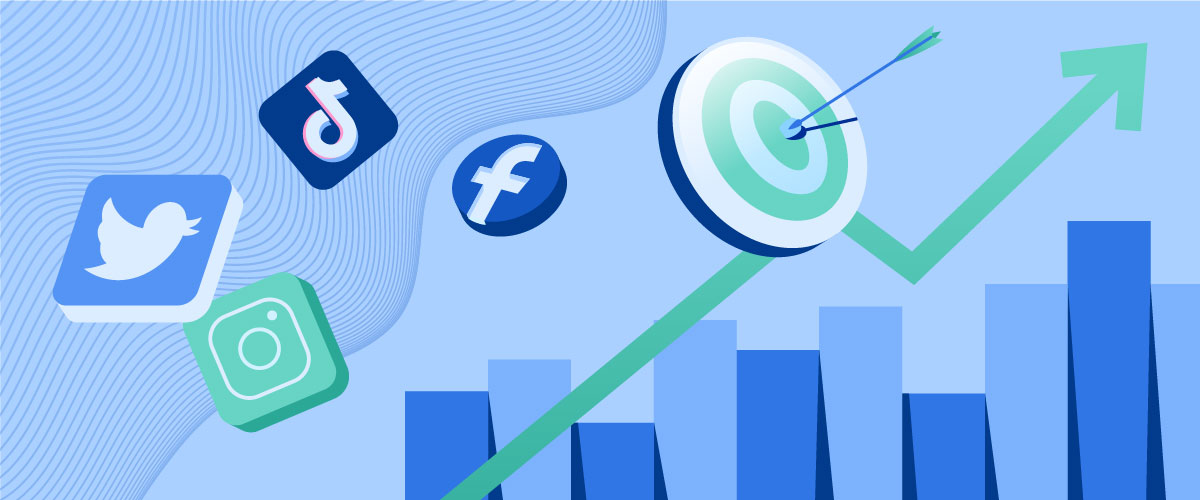Effective Facebook marketing takes time to master, but the proper foundation creates good results. Here we provide a beginner’s guide to Facebook Advertising.
What is Facebook Advertising?
Facebook advertising is a major player in today’s online marketing world. It can be incredibly profitable should an individual has the proper tools in their belt to create an effective marketing strategy. We provide an in-depth overview of how Facebook advertising works and how you can use it to improve your own business.
Paid vs. Organic
The very first thing that one must understand is the differences between paid and organic advertisements. Organic advertisements are, as the name suggests, any posts in which the advertiser made no monetary investment. To attract the right customers with organic posts, it’s important to post relevant, engaging content. Changes to Facebook’s algorithm in recent years have made it difficult for organic posts to receive exposure; however, if your posts are intentional and meaningful, a business can still attract customers.
Paid advertisements naturally require a small investment, but this is the only way to get Facebook to boost or distribute your posts. We recommend that any business looking to see results try out paid advertisements and see if it works for them. These will allow you to target a specific demographic, ensuring that the right people will see your posts. The best part of Facebook advertisements is that even a small investment can yield significant results.
Paid Social vs. Boosting Posts
Before investing, you’ll want to be aware of the different types of available advertisements. With Facebook, you can pay for actual ads, or simply boost a post. Whichever option you choose will depend on your intended result. Boosting your post essentially means you’re taking a pre-existing post and paying for more Facebook users to see it. Creating an ad goes a bit more in-depth. You’ll use Ads Manager to further customize your ad and tailor it to a more specific audience as opposed to a random generation.
How Does Facebook Advertising Work?
In this section, we provide a brief overview of the life cycle of a Facebook ad campaign. You can break these sections into the following:
- Budgeting, targeting, and scheduling
- Manual vs. automatic bidding
- Ad placement

Targeting and Budget
When setting up your ad, you’ll first come up with a few base strategies, which you can build on as you begin to analyze your results. We’ll expand further on some of these points in future posts, but below is a basic outline that will act as an effective starting point.
- When setting your budget, you’ll have to determine how much revenue you intend on making as a result of your ad campaign. Some items you’ll want to consider at this point include your pre-existing audience, your current revenue, and the dollar amount of the product or service you’re trying to sell.
- One of the most important ways to create a successful ad campaign is to determine your target audience and input this information into Facebook’s Ad Manager. You want to let Facebook know the age, locations, and interests of your intended audience. This information will allow Facebook to accurately display your ads to people that will most likely show interest in your product.
- There may be certain occasions in which you can use Facebook’s scheduling feature to decide when you’d like the site to make your ads visible. Knowing your target audience will allow you to know what times they’re active, and you can target them accordingly according to this data. With this in mind, we recommend you keep your ads running fulltime, as turning them on and off may negatively affect your ad’s performance.
Manual vs. Automatic Bidding
Due to the increasing number of businesses paying for ads on Facebook, it can be difficult for everyone to see ads as often as they’d like. As such, bidding ultimately comes into play. Essentially, you will tell Facebook how much you’re willing to pay to get the impressions your business needs to generate a sustainable ROI. Your options, in this case, would be either automatic or manual bidding. The difference between these two are as follows:
- Automatic bidding means that you aren’t giving Facebook a price cap regarding how much they can spend. If you’re looking for a low-maintenance, tractable approach, you can give Facebook the reins and allow its algorithm to get you the best bid at the lowest possible cost. Facebook’s algorithm will choose the best times to display your ads, as it will target the times when consumers are most likely to convert. This is a relatively hands-off approach and will likely yield the best results.
- Manual bidding is best for those with a stricter budget, as you’ll let Facebook know your cap—similar to when you send someone to an auction on your behalf but give them a maximum budget. Bidding on Facebook is pay-to-play, so manual bidding may not always yield the best results. However, it’s a fair option for anyone looking to improve their audience on a strict budget. Manual bidding is also acceptable when you have a niche business in which there may not be a ton of competition.
Ad Placement
This is yet another area in which you determine how much work you’ll hand over to Facebook and how much you’ll choose to do yourself. Many people usually recommend that you let the Facebook algorithm determine the best placement for your ads, though you may choose to tailor these to your preferences. When you opt to choose your own placements, you’ll receive a checkbox where you can select or de-select a litany of options. Automatic placements allow Facebook’s algorithm to place ads where your audience is most likely to respond to them.
One of your choices is if you want your ads to display on desktops, mobile devices, or both. In this situation, we highly recommend you select both options.
About Facebook Pixel
Facebook Pixel is an extremely important tool that’s integral to getting the most out of your advertising campaign. This is an analytics tool that will ultimately allow you to evaluate the current performance of your ads, as well as what you’ll need to tweak or adjust moving forward. This tool allows you to see what actions that users take on your website you can credit to your ad campaign—this includes the results of paid, as well as organic, advertising. Facebook Pixel is extremely important, as it collects a massive amount of data and uses it to curate the results of your advertising campaign. You can use Facebook Pixel to achieve some of the following important actions:
- Remarketing to individuals who already visited your website through any channel.
- It allows you to see the number of conversions you have due to your ad.
- Targeting your ideal audience.
- Understand how individuals that have seen your ad go on to interact with your website—including bounce rates, purchases, abandoned carts, et cetera.
Improving Your Outreach
When working on your Facebook advertising campaign, it’s important to know that you can’t simply set up your ads and sit back and watch your profits flow in. You need to constantly monitor your results and determine the areas you can improve on. In this section, we give an overview of how to improve your audience, as well as your ongoing strategy.
Targeting the Right Audience
We mentioned above that one of the things you’ll need to do is determine your audience and let Facebook know who you want to target. Once you begin to see conversions, you can create a Lookalike Audience—users oftentimes achieve this via data from Facebook Pixel. Once Facebook knows the type of people that your ads attract, it will use this information to further narrow down the number of potential customers. One way in which Facebook Pixel helps your business is that once installed, it collects data points from users across the web. Once installed on the backend of your website, Facebook Pixel will track customer’s actions across your site and use relevant data to accurately target the most qualified audience.
Determining Ad Effectiveness and Adjusting Your Strategy
Once you have your ads running for a while, you’ll hopefully begin to turn a profit. Whether you’re seeing the results you want to or not, it’s important to know that there will always be an area in which you can improve. So, how do you know if your ads are working well? You can determine this by examining the following:
- One area you’ll constantly monitor is your Facebook Ads Manager. Once you’re in the All Campaigns tab, you’ll be able to locate a dropdown menu and select the Performance and Clicks button. Here, you’ll be able to view your click-through rates, which will reveal any type of conversions made.
- Once you are aware of how much of your business’s profits you can attribute to your Facebook campaign, you can successfully determine your ROI. You’ll do this by dividing the amount you spent on your campaign by the conversion value. This allows you to determine where you’re at regarding your ultimate profit goals and if your current investment is turning your intended profit.
So, what do you do if you’re analyzing your data and aren’t where you’d like to be yet? Before you begin to get too unhinged and hurriedly put a stop to your campaign, do not lose hope. You may simply need to adjust your current strategy. Try a few of these simple hacks and see if they give you that extra boost you are looking for:
- Constantly analyze your data and results. Keep an eye on any consistently weak areas.
- Adjust your target audience.
- Run a competitive analysis and evaluate your competitor’s strengths and weaknesses.
Facebook Ads for Small Businesses
If you’re promoting a small business, your strategy may be slightly different than that of a more widely-known company. Small business owners that dismiss advertising on social media may be doing so simply because they aren’t aware of the impact that it can make. However, Facebook’s targeting system makes it so that small businesses can truly seek out the audience they’re looking for. You’ll achieve results this way by creating a buyer persona, and with a local business, Facebook can use your location to curate an audience.
Small businesses can also use their ads to offer something that other companies cannot. Make your ads seem more personal through the use of videos and natural language. You can also use discount codes or other special offers to catch the attention of anyone scrolling through their Facebook feed.
Logical Position and Facebook Advertisement
Here at Logical Position, our services extend beyond PPC and SEO. Amongst our many offerings are an expert approach to expanding your business through social media advertising. We know how to create a campaign that will optimize the success of your company, and you can be sure that you’ve placed the future of your business in reliable hands.
When you sign on with us, we’ll assign an Account Manager to your account. They will work with our team to create a unique marketing strategy tailored to your specific needs. We can create your ads, track your conversions, and our experts will provide highly targeted content using creative graphics and ad copy that will draw in customers. Best of all, you won’t have to worry about blindly handing your access away—while we work on your ads, you’ll still have full ownership of your Facebook Ad account.
Why You Should Invest in Facebook Advertisements
In today’s world, a business can’t pass up the opportunity to use social media to their advantage. Over 1.5 billion people log into Facebook daily, making it one of the top advertising opportunities on the market. To close this article out, we’ll leave you with a few convincing reasons that you should use Facebook marketing to take your business to the next level.
- Of all the advertising methods on the market, Facebook has one of the best algorithms for accurately targeting a specific market.
- Facebook advertising is incredibly affordable, and you can get started with an investment as low as $5 a day.
- Facebook collects all analytics and results and makes them available for you to examine them at any time.
- Facebook’s methods for targeting are incredibly effective. Unlike a billboard or magazine ad, you can be sure that the right people see your ads.
In Conclusion
As we outlined above, Facebook advertising can be extremely effective—but only when done correctly. Over the next several weeks, we’ll dive more into different strategies for getting the most out of your Facebook Advertising campaign. Additionally, feel free to contact us today to learn how we can help your business to grow.




